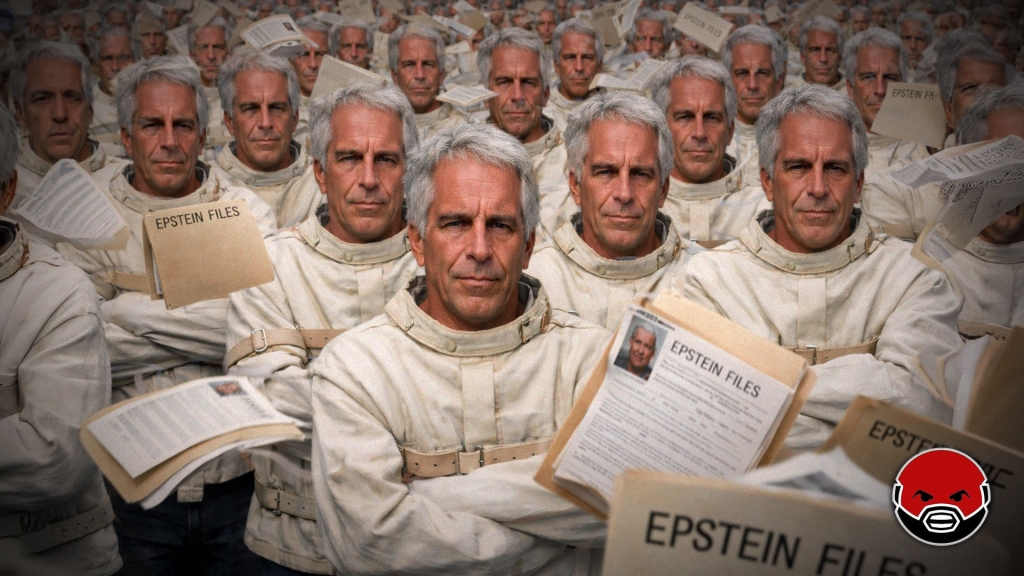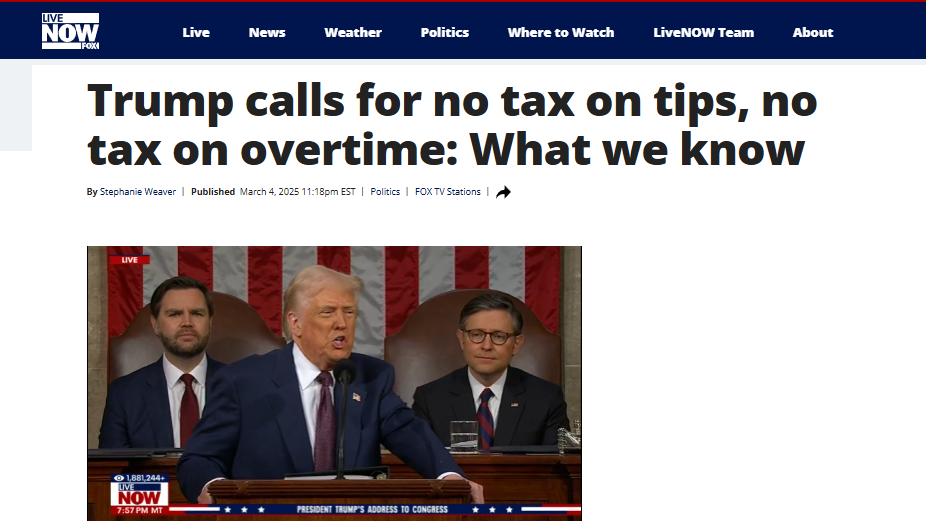2024 is here. As the election season heats up, the Alabama Legislature returns for business, and political issues both new and old unfold across the state — here are the headlines we’ll seeing some version of in the next 12 months:
U.S. Presidential Election
Yes, this is a national story, not a state story, and Alabama is a lock to go to former President Donald Trump or the Republican nominee.
The Republican nominee will resoundingly beat the Democratic nominee in Alabama, and Trump, if he is on the Alabama primary ballot on March 5th, will trounce Gov. Ron DeSantis and Ambassador Nikki Haley in the primary.
Elections have consequences, as Huntsville found out last year when Space Command was ripped away from Alabama on the whim of a President who does not like the people of this state or its leaders.
More illegal immigrants have entered this country and been resettled here and elsewhere under Joe Biden than there are people in this country. The 81-year-old President has yet to submit a plan to Congress to curb the wave of humanity flowing across the southern border, much less a balanced budget.
Relations with Russia, China, North Korea, and Iran have all worsened under three years of Biden’s leadership, and five more years of this foreign policy will lead to a very potentially dangerous future.
Nothing impacts Alabama moving forward more than the person who wins that office on Tuesday, November 5th.
Alabama 2nd Congressional District
Open congressional seats are rare in Alabama — open seats that either party can potentially win is an even rarer occurrence.
The redrawn 2nd Congressional District favors Democrats. Still, a declining population in the Black Belt and a likely Democratic presidential nominee that not even Democrats are really enthusiastic about means that a Republican could still potentially win the seat in an upset.
There are 21 candidates in the field, so the nominees likely won’t be settled without runoff elections.
National money will flow into this race in the fall because it could have an enormous impact on which party controls the U.S. House of Representatives, where the differences between the two political parties in Washington have never been greater or more polarizing.
Legal Gambling and State Lottery Push
Some sort of gambling legislation will likely be a major topic of discussion in 2024 because Speaker of the House Nathanial Ledbetter (R-Rainsville) wants it to be a discussion.
GOP leadership in both chambers could theoretically squash any serious consideration of a divisive gambling bill — but reports indicate they’re open to considering a constitutional amendment expanding gaming under the right circumstances.
A state lottery, sports wagering, internet gambling, and a crackdown on illegal gaming are all purported to be part of the proposal. Nearly half of the Republicans will not vote for this in either Chamber, so the leadership will have to negotiate with Democratic leaders in both Houses to pass a gambling bill.
It must come up this year because if the bill passes, it would have to be ratified by the voters during the general election on November 5th. If it does not pass in 2024, it will likely be delayed for years.
There is no scheduled statewide election in 2025, and Republican lawmakers would prefer not to have gambling on the ballot in 2026 when they run for their own re-election, as gambling tends to bring out Democratic voters.
Medical Cannabis
Medical marijuana in Alabama will likely be distributed in its legal form in 2024.
The Alabama Legislature and Governor Kay Ivey passed legislation in 2021, but 2023 saw lawsuit after lawsuit filed against the state agency tasked with bringing medical cannabis to the people of the state, and none of the ongoing legal drama has been resolved.
In theory, it could happen as early as sometime in the spring, but state and federal courts are going to have a say on when that happens and what it looks like. Additionally, there is also the possibility that some lawmakers will try to open that 2021 statute.
School Choice
A comprehensive school choice bill failed in both chambers of the Alabama Legislature in 2023 without ever making it to the floor for a vote in either House.
While Governor Ivey has said she’s making the expansion of school choice a priority in 2024, the Alabama Education Association (AEA) and the School Superintendents will oppose any significant school choice bill.
They oppose any money or students leaving public education, but Alabama has one of the worst performing school systems in the entire country, and increasingly, the poor performance of the schools is being seen as the chief long-term hindrance to economic growth in Alabama.
Congressional District 1’s Republican Primary
Congressman Barry Moore (R-Enterprise) is running against Congressman Jerry Carl (R-Mobile) in the Republican primary on March 5th.
The court ordered racial gerrymandering of the First and Second Congressional Districts and left Congressional District 1 with a population that is more conservative, and more Republican, with two incumbent GOP Congressmen living in the same district.
On the surface, there appears to be little difference between the two. Both are conservative Republicans; both voted to keep Kevin McCarthy as Speaker of the House, both voted for conservative firebrand Jim Jordan (R-Ohio) for Speaker, and both voted for relative newcomer Mike Johnson (R-Louisiana) for Speaker.
However, a closer look at their voting reveals more of a divide. Moore is a member of the House Freedom Caucus — Carl is not. Carl voted for the bipartisan National Defense Authorization Act, while Moore opposed the compromise bill on fundamental grounds.
Republican primary voters will decide what the path forward will look like. Whoever wins the GOP primary will be the Congressman, as Democrats have no viability in Congressional District 1 as the court drew it.
Ballot Harvesting
Another bill likely to be taken up during the 2024 session is Senate Bill 1 (SB1), sponsored by Sen. Garlan Gudger (R-Cullman).
During the 2020 election, surrogates were recruited and paid nationally to go door-to-door (usually targeting likely-Democratic voters) to “help” voters apply for, fill out, and submitt absentee votes.
This controversial practice is less common in Alabama but is a reality, especially in larger cities. SB1 would make getting paid to harvest ballots illegal. Democrats and moderate Republicans defeated a similar bill in the state Senate in 2023 after it passed the House of Representatives.
Secretary of State Wes Allen (R) has prioritized this legislation in his bid to make Alabama elections “more secure.” Both Allen and Gudger hope that the Senate is not the roadblock it was in 2023.
Alabama Department of Corrections
Nothing is potentially more of a minefield for state government than the Alabama correctional system.
The Alabama Department of Corrections (ADOC) is building a mega prison in Elmore County. The project, which was given to Cadell Construction in Montgomery, is the largest project that Cadell has ever built and their first prison.
The cost of the unbid contract has spiraled to over one billion and is climbing. ADOC was authorized to build a second mega-prison in Escambia County. They have cleared land and completed some site work but still need a general contractor or a plan for the second prison.
Meanwhile, the conditions of the existing decades-old prisons have continued to deteriorate, and plans to upgrade many of those old facilities have been postponed while the Elmore project is costing more and more.
There are currently three major lawsuits in federal court, one brought by the U.S. Department of Justice against the state, claiming that the state must improve conditions within the prisons.
One of the lawsuits is against the Board of Pardons and Paroles and is urging the state to grant more paroles.
The state is defending against the suits while working to hire more prison guards, but an adverse court ruling could potentially affect state finances and public safety.
Rural Healthcare
Rural hospitals are another topic of discussion in the state. According to the Alabama Department of Public Health, 8 of Alabama’s 67 counties do not have a hospital, and 35 counties do not have a hospital that delivers babies.
Rural Alabamians are having to travel great distances to get knee replacements, heart bypass surgeries, see a cancer specialist, receive mental health services, or an ophthalmologist. Rural. Alabama has a primary care physician shortage, and many of the state’s rural hospitals are struggling financially.
A lot of those financial woes were masked during COVID-19 due to a massive influx of federal CARES Act and American Rescue Plan Act dollars. Now, those funds are starting to run out, and the Alabama Legislature is being asked to come up with a solution to address rural healthcare.
The Alabama Democratic Party
The Alabama Democratic Party is expected to be a continual mess.
2024 will bring a showdown between the Alabama Democratic Party leadership and the Democratic National Committee on the state party’s bylaws, mainly whether or not bylaws changes striking the ADP’s required LGBTQ+ Caucus’s allotments of seats on the State Executive Committee were valid or not.
Democrats hope to take Alabama’s Second Congressional District in November. Doing that will require both the progressive Doug Jones faction and the Alabama Democratic Conference led by ADP Chairman Randy Kelly and Joe Reed to work together with national Democratic Organizations like the DNC and ACT Blue.
That cooperation is going to require resolving some aspects of their ongoing power struggle.
To connect with the author of this story or to comment, email [email protected]













